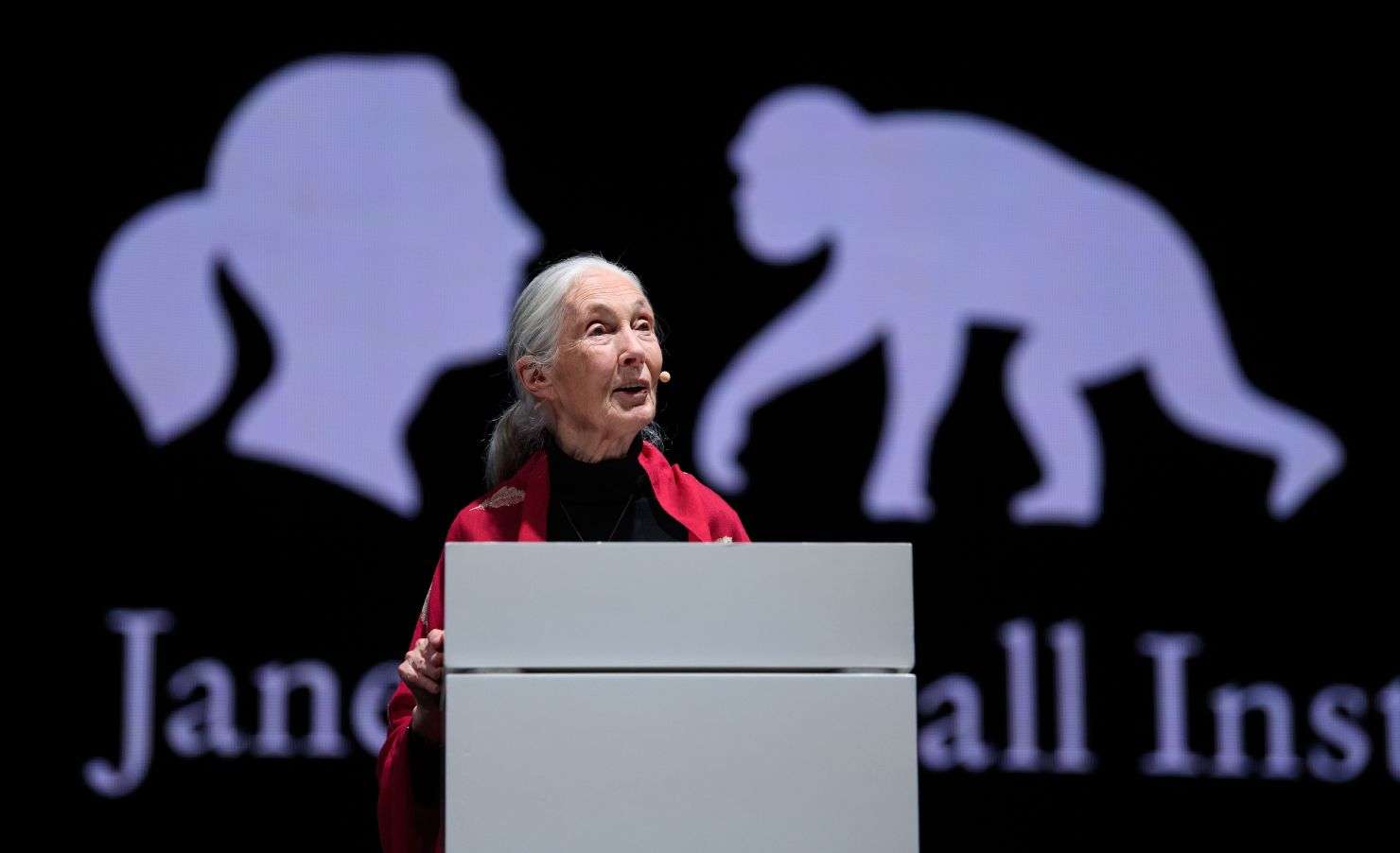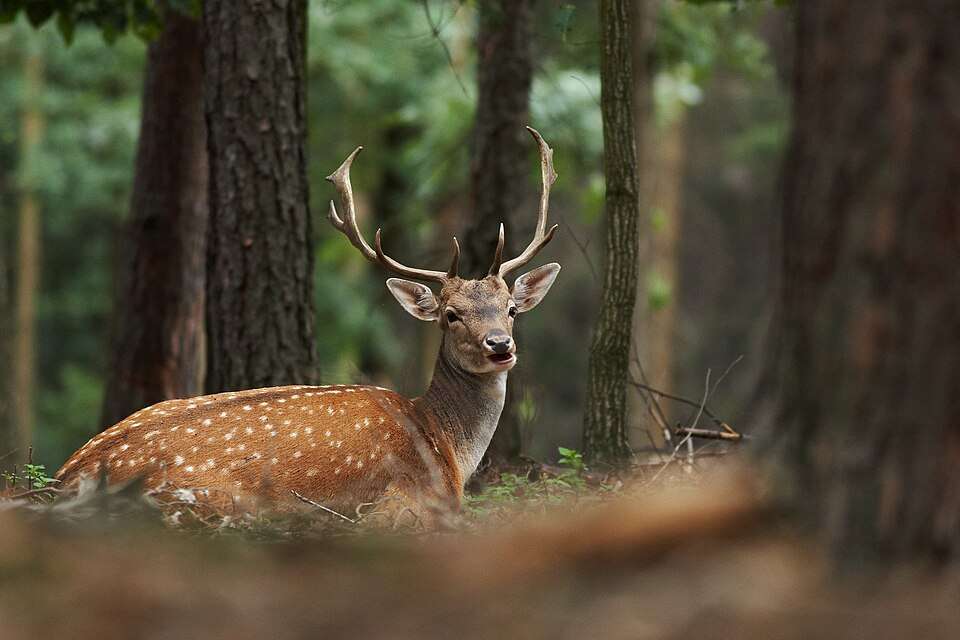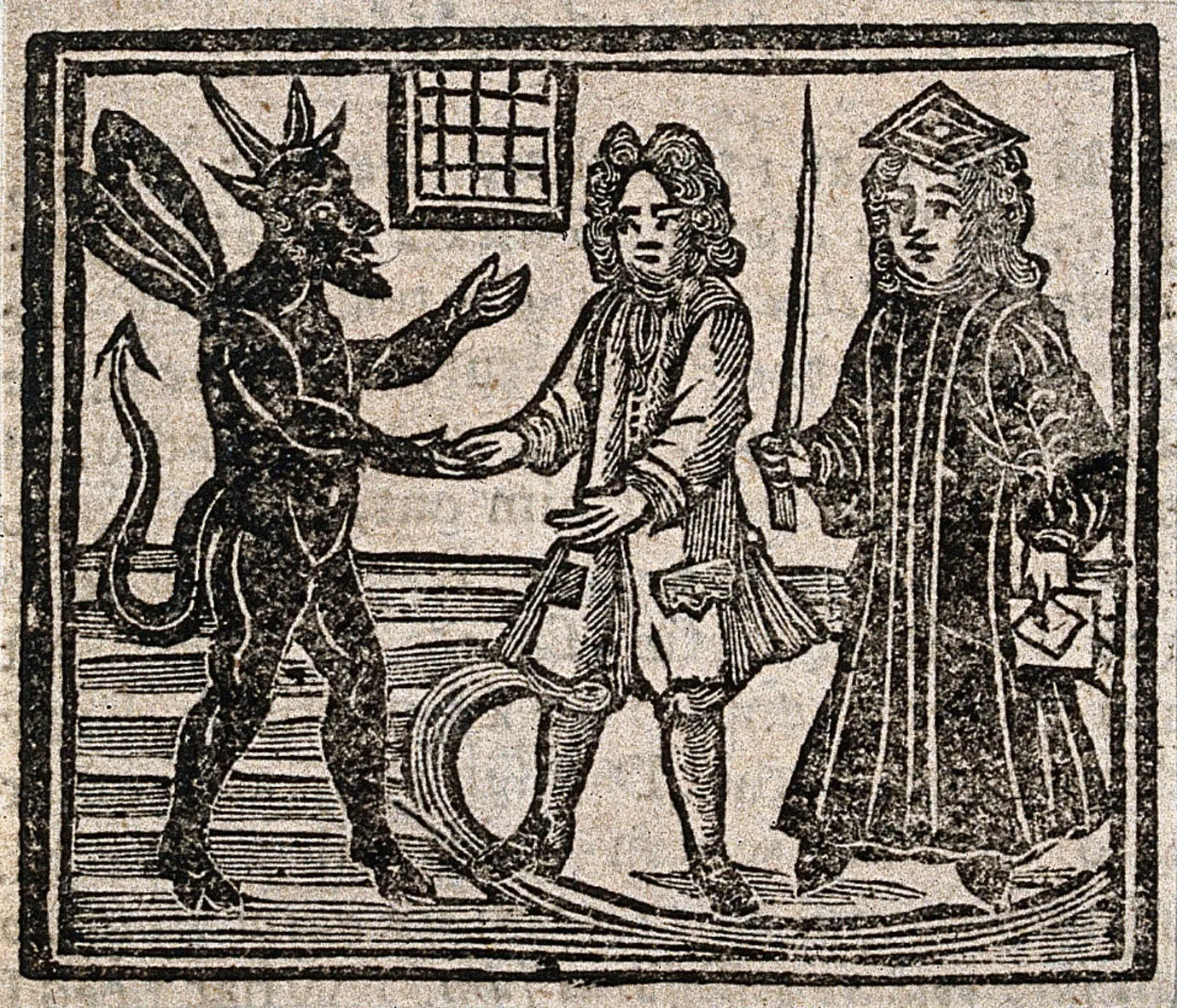Background photo: media.cnn.com
An Influential Dream
Jane Goodall, also known as Dame Valerie Jane Morris-Goodall, was a British anthropologist and primate ethologist. From a very early age Goodall was interested in animal behaviour, especially considering the African wilderness. She even had a plush toy chimpanzee instead of a teddy bear when she was a small child which, according to her, initially sparked her curiosity for animals.
She decided to attend a secretarial school in South Kensington after her graduation because she couldn’t afford college tuition. However, her dream to visit Africa and observe the native wildlife had only gotten stronger with time. At the age of 23 she finally set out to Africa to visit a friend in Nairobi, Kenya. During her passage in 1957 she met Dr. Louis Leaky who was a renowned paleoanthropologist at the time. Leaky was in search of a personal assistant so he offered Goodall the position, which she accepted.
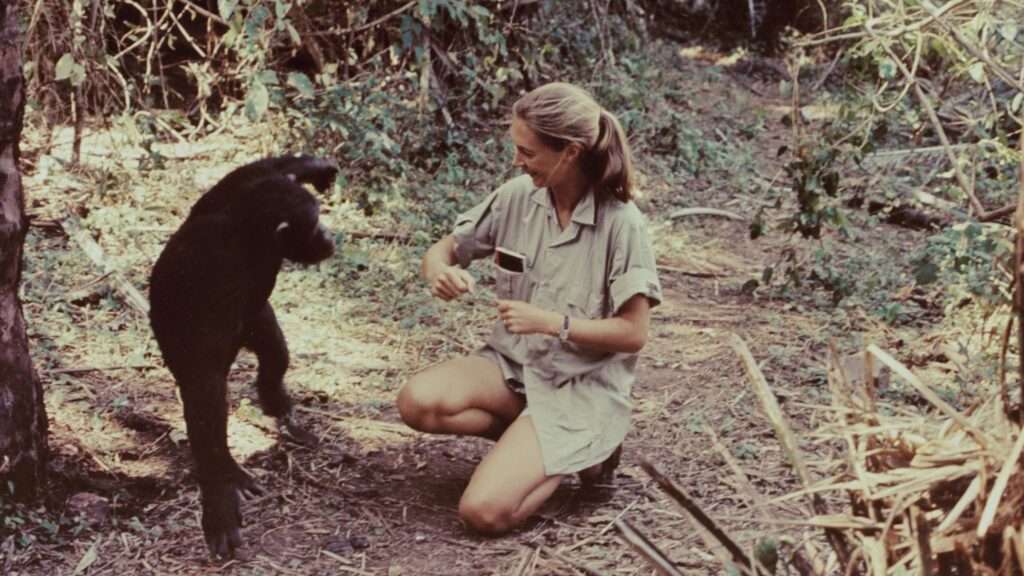
Later Dr. Leaky and Mary, his wife and co-researcher, agreed to send Jane to the Gombe Stream Game Reserve, today the Gombe Stream National Park, in Tanzania to observe the behaviour of wild chimpanzees. They approved of Jane’s passion and vast knowledge of nature and thought her to be a perfect candidate to study chimpanzees due to her boldness and high enthusiasm. Dr. Leaky didn’t think that Goodall’s lack of academic education was a disadvantage. Regarding his own research, which aimed to gather more information about early humans by studying chimpanzees (humans’ closest, living relatives), he presumed Jane’s genuine curiosity could actually come in handy. In fact, he thought that she was lucky due to her freedom from the constraints of traditional methodology so she could study chimpanzees with a pair of fresh eyes and an open mind. In 1958 they returned to London to raise money for their further expeditions, and Jane started to study primate behaviour more in depth with the help of notable primatologists, Osman Hill and John Napier.
Working in the Gombe Stream National Park
In 1960, after Leaky received the necessary funds from the English government, they travelled back to Tanzania. Jane Goodall set up a camp in the National Park accompanied by her mother because local officials didn’t allow women without a chaperone in the area at the time. According to Jane, her mother always supported her in pursuing a career in primatology, which was an overtly male-dominated area of science in the 1950s.
During her stay in Gombe Stream she befriended an older, male chimpanzee whom she named David Greybeard, and by earning David’s trust, who was a high-ranking male in his community, she was allowed to study every member of the group as well. Her research and observations led to change the prevalent scientific conceptions around chimpanzees at the time. She claimed that chimpanzees are not herbivores but rather omnivores, meaning that they eat and hunt for meat, and that they use and make their own tools which was previously considered to be a human defining trait. When she sent her findings to Dr. Leaky, he wrote back that “now we must redefine ‘tool,’ redefine ‘man,’ or accept chimpanzees as humans.”
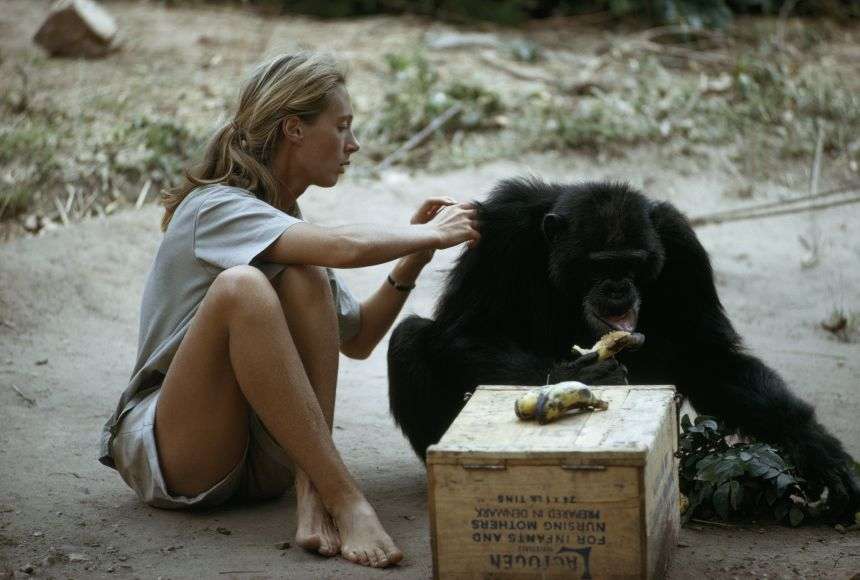
Goodall further stated that chimpanzee communities show evidence of familial bonds amongst its members who are also capable of expressing different emotions such as love, joy, and sorrow. She also observed that these animals can be rather violent and aggressive when their dominance is threatened within the community. She realized that chimpanzees are even more similar to humans due to their darker side which exists within their nature.
In 1966, Jane Goodall earned her Ph.D. in ethology at the University of Cambridge, making her the eighth person who could study in the programme without first possessing a bachelor’s degree. She was heavily criticised by her scientific peers who considered her methods to be completely unprofessional. For example, she had a tendency to give names to the subjects in her studies, which was a big taboo at the time, and she claimed that non-human animals have human-like personalities and emotions. In addition, Goodall further angered academics when she addressed her first book to the general public rather than the conventional, scholarly audience.
Activism
To further promote the Gombe research, Jane Goodall founded the Jane Goodall Institute (JGI) in 1977. The main goals of the Institute’s nature conservation programmes are to stop deforestation, which became a major issue in the late twentieth century, and to protect the natural habitat of chimpanzee communities. Another mission of Goodall’s was to help chimpanzees who were held at medical research institutions, and established the Tchimpounga Chimpanzee Rehabilitation Centre for those who were freed from such facilities or became orphans due to the bush-meat trade. The JGI still offers a wide range of opportunities like the Roots & Shoots programme that helps young people globally to become advocates for a positive change by taking part in projects that protect the local environment, wildlife, and their own communities.
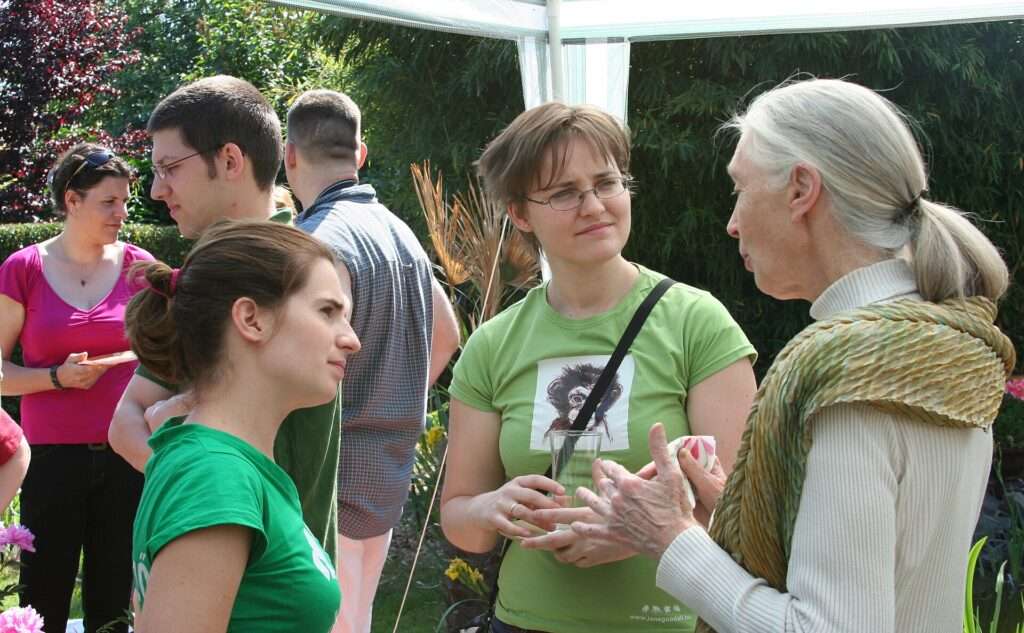
In 1994 Goodall was the founder of the Lake Tanganyika Catchment Reforestation and Education (TACARE or „Take Care”) project which aims to preserve chimpanzees’ natural habitats by the process of reforestation in the area of Gombe and provide education to local communities on sustainability and agriculture. In addition, TACARE offers reproductive health education to young girls, and helps them pay for their college tuition through different scholarships.
Furthermore, Jane Goodall spoke against the exploitation of animals in medical research, zoos, farming, and sports, and set an example for choosing an ethical, healthy, and environmentally conscious diet by being a vegetarian most of her life. She also brought attention to the lasting effects of climate change regarding endangered species like the chimpanzees.
A Lasting Heritage
Nowadays, primatology has an almost equal number of female and male researchers since 2019 thanks to Jane Goodall’s work and encouragement that inspired women to choose careers in this field. She received numerous awards and honours for her invaluable effort and work in science and nature conservation. She was awarded the title of Dame Commander of the Order of the British Empire (2003), and received the Templeton Prize (2021), the Stephen Hawking Medal for Science Communication (2022), and the Presidential Medal of Freedom (2025).
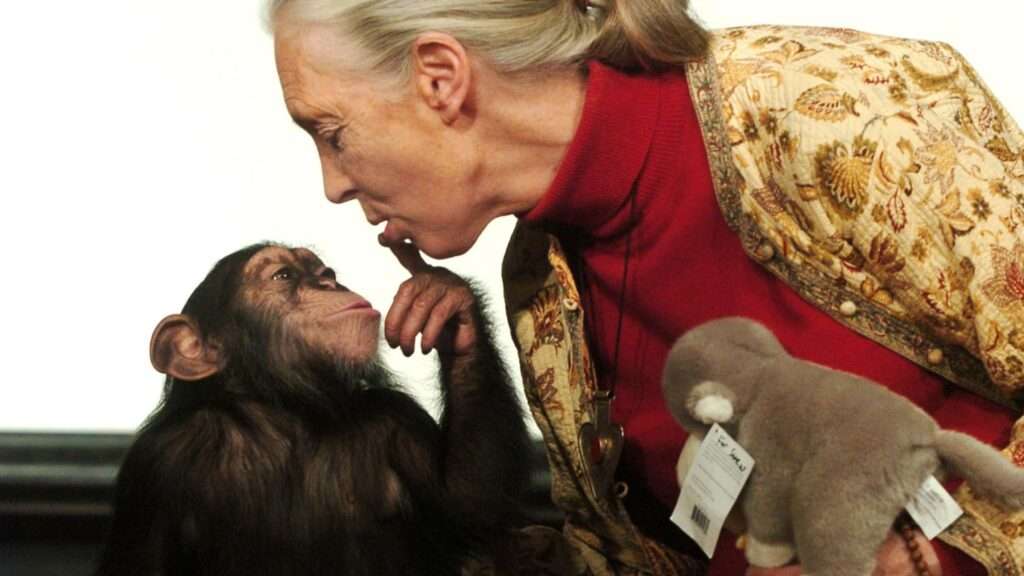
Jane Goodall dedicated her life to raise awareness of the significant effects we have on our environment, and how acts of humanity can lead to irreparable damage in nature. She raised her voice for those who couldn’t speak for themselves, and advocated for a better world in which nature, animals and humanity can exist in harmony. Goodall fought for a future where wildlife conservation is at the centre of all human action and believed that her dream would inspire others to join this shared mission. Her legacy lives and will live in later generations, and her life will always be an inspiration for those who passionately believe in a positive change.


